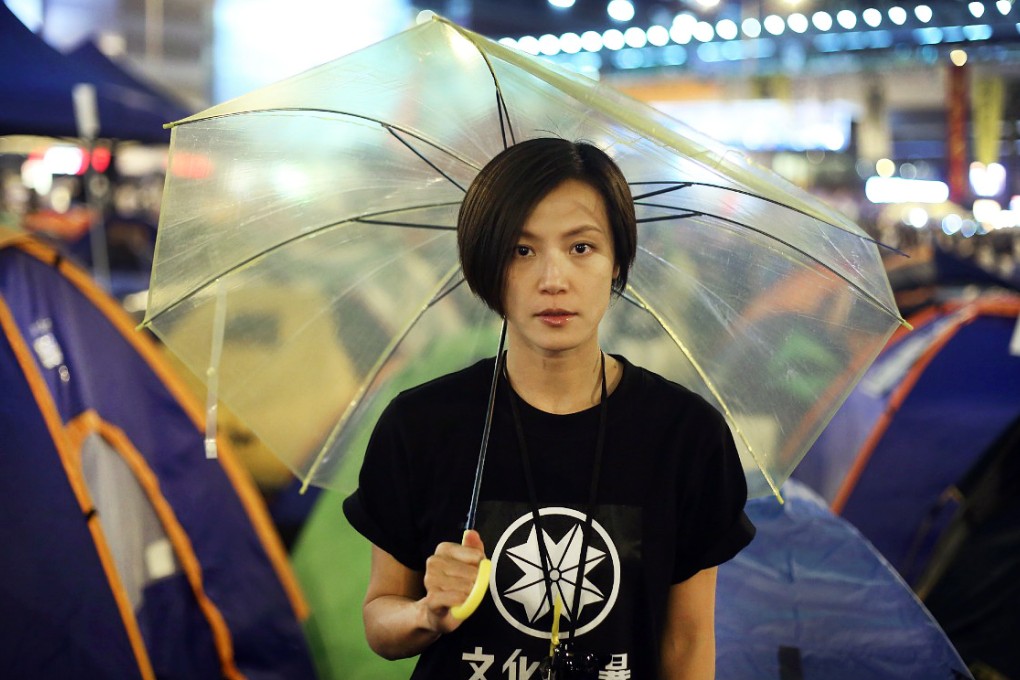Canto-pop star Denise Ho vows to fight on for democracy despite mainland backlash
Artists face a dilemma in deciding whether to back the student protests for real universal suffrage - whether to follow their conscience or bow to Beijing, which can exclude them from the lucrative mainland market

Wearing a black T-shirt and minimal make-up, Denise Ho Wan-see blends right in among thousands of protesters on Harcourt Road in Admiralty. For more than a month, the Canto-pop singer and celebrity has joined students camped outside government headquarters to call for an open election of Hong Kong’s next leader.
Watch: Hong Kong pop singer Denise Ho: Occupy Central students inspire me
Despite the risks for her career, she vows to stay until the end.
“Students are fighting for genuine democracy, which is what Hong Kong has been fighting for many years for,” says Ho, 37. “As adults...we must fight for them.”
